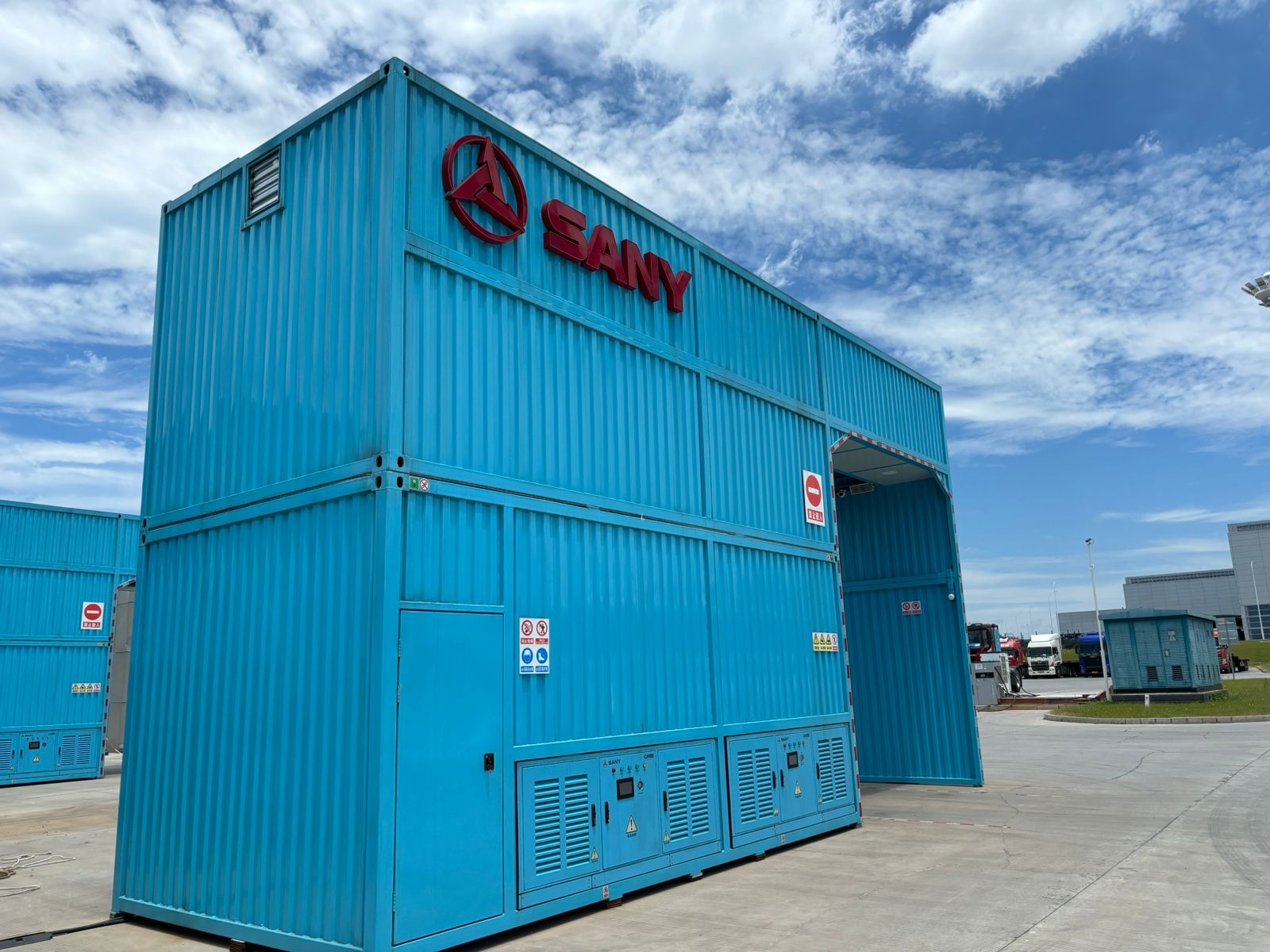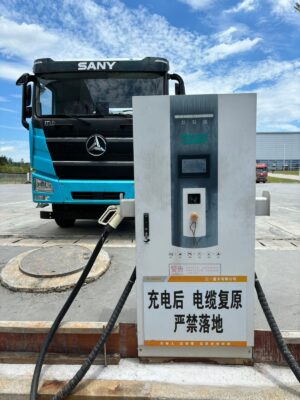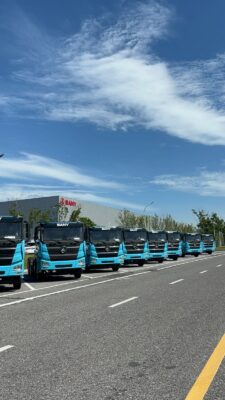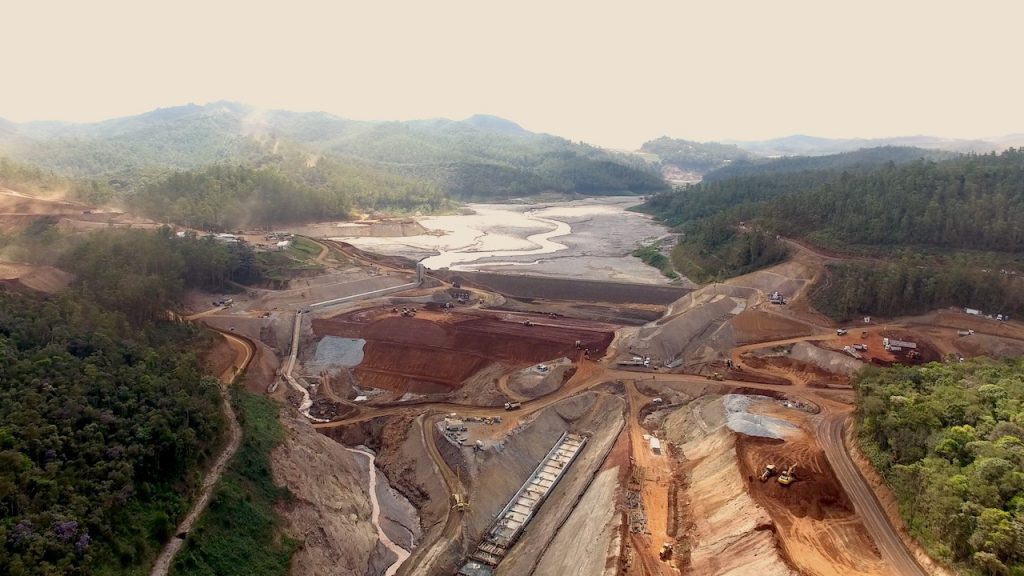Sign up for daily news updates from CleanTechnica on email. Or follow us on Google News!
South African electric car drivers can now comfortably charge across the country’s major highways, such as the N3 from Johannesburg to Durban. One can comfortably do this even in an EV with a relatively small battery pack by today’s standards, as illustrated in this recent road trip from Johannesburg to Durban and back by Ryan Jarret.
Zero Carbon Logistics wants to build an electric vehicle charging network to enable heavy duty electric truck drivers to also travel comfortably across South Africa. To initiate this process, Zero Carbon Logistics has signed a Memorandum of Understanding with Chinese multinational company SANY. SANY will be Zero Carbon Logistics’ official technology providers for the planned rollout of its off-grid electric truck charging network on the N3 electric highway, a first for South Africa.
The proposed network will start with six renewable energy-powered charging stations designed specifically for electric trucks that use the N3 route between Johannesburg and Durban, which has over 8,576 trucks per day, making it one of the busiest truck routes in the country. The MOU was signed at SANY’s Premium Customer Summit for Africa BU2024 in China, which showcased new innovations in the manufacturing of electric trucks and electric charging technologies. Over the past few years, SANY has invested billions into research and development to develop cutting-edge electric heavy machinery as well as the charging infrastructure to power these products.

“We are thrilled to be partnering with global electromobility leader SANY for the development and long-term operation of the 6 solar powered truck charging sites that we will be initially building along the N3 highway. Their technical expertise and superior design capabilities will ensure these facilities offer ultra-fast seamlessly integrated green charging technology that will be able to charge trucks within 20 minutes with chargers, or battery swapping in under 5 minutes,” said Joubert Roux, co-founder of Zero Carbon Logistics.
These six charging stations will form part of the 120-truck charging network that Zero Carbon Logistics will be developing on major freight routes across South Africa over the next few years. The process to permit these 6 sites has started due to the experience of permitting processes being long and arduous, and after the next 24 months, they will be operational.
Both parties will work together to introduce and supply overseas-manufactured electric trucks and battery technology in South Africa.

“If the South African government wants to realise any goals of achieving net-zero transport by 2050 for example, it needs to introduce real incentives to encourage South Africans to choose electric vehicles or electric trucks over internal combustion models (ICE). This must include opening the market to cheaper imported models by implementing a six-year tax holiday on the import of EVs. This is the only way we will achieve real penetration of EVs in the country which will also create a conducive environment for local EV and battery manufacturing,” said Joubert Roux, co-founder of Zero Carbon Logistics.
Zero Carbon Logistics adds that it is important to recognize that a mass transition to electric trucks could potentially create major strain on the country’s predominantly coal-fired national grid. “If one views the N3 highway between Durban and Johannesburg alone, the electricity required to charge the 8 576 trucks using this route daily would add an additional 2.3 billion kWh/year in electricity demand to the grid. It is therefore critical that the country starts to invest in charging infrastructure to power these electric trucks.”
“Zero Carbon Logistics has already entered agreements with landowners for seventy-nine of the 120 off-grid electric truck charging sites that it plans to build on long haul routes across the country. We have also started the permitting process for the first six sites on the N3 with the aim of these charging stations to be built by November 2027. However, in order to speed up the development of national EV charging infrastructure which will support the country’s EV transition and help promote renewable energy, national government must create a regulatory framework that includes less stringent land use and environmental application processes to establish solar-powered charging stations,” Roux added.
 Zero Carbon Logistics looks forward to working with SANY to bring the most innovative charging, battery, and electric vehicle technology into the country. It remains committed to working in partnership with a range of commercial partners as well as government to position South Africa as a leader in electric mobility and green charging solutions.
Zero Carbon Logistics looks forward to working with SANY to bring the most innovative charging, battery, and electric vehicle technology into the country. It remains committed to working in partnership with a range of commercial partners as well as government to position South Africa as a leader in electric mobility and green charging solutions.
It looks like the team from Zero Carbon is looking to cover charging requirements across the various vehicle classes along South Africa’s major highways. Zero Carbon Logistics is the holding company for the heavy electric truck route development, separate from Zero Carbon Charge. Zero Carbon Charge, which we have covered previously here, is the holding company that is focused on developing the network of 120 charging stations for electric passenger vehicles and light commercial trucks of up to eight tons. All of this sounds quite interesting, and I hope to see these proposals progressing in the near future. Electrifying major heavy duty electric truck routes could help catalyze adoption of these trucks.
Images courtesy of Zero Carbon Logistics
Have a tip for CleanTechnica? Want to advertise? Want to suggest a guest for our CleanTech Talk podcast? Contact us here.
Latest CleanTechnica.TV Videos
CleanTechnica uses affiliate links. See our policy here.
CleanTechnica’s Comment Policy





